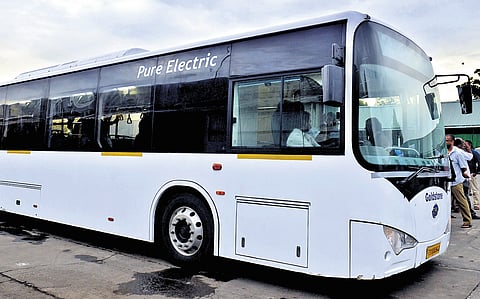MTC to soon issue work order for 500 e-buses; fixes per-km operational fare
CHENNAI: The MTC is set to issue a work order next week for the production of 500 low-floor electric buses. The transport undertaking has also fixed the per-km cost at Rs 77.16 for non-AC e-buses and Rs 80.86 for AC e-buses, according to official sources.
Last month, the Metropolitan Transport Corporation (MTC) issued a Letter of Empanelment (LOE) to the successful bidders, accepting their offer and finalising the project cost proposed by them.
Under the Gross Cost Contract (GCC) model, the bus operators will manage 100 AC e-buses and 400 non-AC e-buses. The GCC model requires the operator to build, operate, and maintain the buses for 12 years, with MTC compensating them by paying fixed fares throughout the contract period.
Official sources from MTC stated that final orders for the e-buses will be issued next week, and the buses are expected to be operational by April or May next year. “The per-km operational cost for e-buses is expected to be around 30% cheaper compared to diesel buses. However, the exact benefits of switching to e-buses will only be evident after the launch of the services,” said an official.
The seating layout of the non-AC buses will resemble that of regular BS-VI diesel buses. “The ventilation issues faced in ultra-low-floor buses currently operating in the city will not be present in the non-AC e-buses,” explained the official. Infrastructure for e-bus maintenance is being developed at depots in Vyasarpadi, Perumbakkam, KK Nagar, Poonamallee, Tondiarpet, and Perambur, the official added.
“The tender norms have been framed in line with practices followed in World Bank-funded projects implemented in New Delhi and other metro cities in the state.” According to official documents, the total project cost is estimated at Rs 875 crore. While 70% of the cost will be funded by the World Bank, the remaining 30% will be borne by the state government.
The proposed 500 e-buses are part of a larger project to procure 1,000 low-floor electric buses funded by the World Bank. An additional 500 e-buses will be procured through loans from KfW, a German-based bank. In total, 1,500 electric buses are expected to be added to the fleet.

